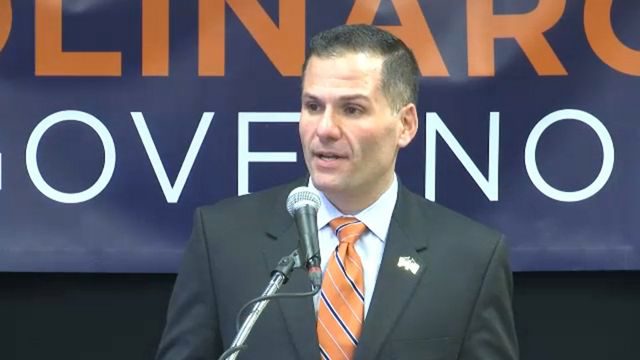
Molinaro
Charter Communications has found itself an ally in Marc Molinaro, Republican candidate for New York’s governor, who attacked Gov. Andrew Cuomo on Tuesday for ordering the removal of Spectrum from New York State.
“We’ve got a megalomaniac on our hands, a veritable ‘Putin on the Hudson,'” Molinaro charged, defending the cable company for being attacked by the governor and “his surrogates” for political purposes.
Cuomo “put his thumb on the scale of a major PSC decision,” said Molinaro. “I think Andrew Cuomo got furious with NY1 News and effectively pulled the plug on an entire cable system as punishment to NY1, and as a warning to others he can affect who dare to ask him tough questions.”
Molinaro has repeatedly claimed the Public Service Commission is in the back pocket of the governor’s office.
Cuomo vs. NY1 – Spectrum’s 24-hour news channel in New York City
Molinaro’s campaign has been critical of an ongoing spat between the governor and reporters from NY1, Spectrum’s 24-hour news channel in New York City.
Earlier this month, Cuomo bristled at a question about improper campaign contributions from Crystal Run Healthcare, a health insurance provider in Middletown. NY1 reporter Zack Fink asked if the governor was considering returning those contributions and launching an internal investigation.
Gov. Cuomo
GOV. CUOMO: […] If the ongoing investigation finds any fraud, then as we’ve always done, we will return the donations. That’s standard operating procedure. We’re doing it in this case; we’ve always done it.
But speaking of fraud, Charter Spectrum has been executing fraud on the people of this state. They were given a franchise for a very specific set of conditions. It is a very valuable franchise. Many companies could have been given the franchise. Charter Spectrum said that they would increase cable access to the poor and rural communities around the state. That was the condition of them getting the franchise. I promised this state 100% high-speed broadband. Why? Because high-speed broadband is going to be the great equalizer, the great democratizer.
Whether you’re a business, an individual, you’re going to need high-speed broadband to be competitive. Charter Spectrum defrauded this state. They are defrauding consumers. Charter Spectrum is running ads that say we are ahead of schedule and at no cost to the taxpayer. The Public Service Commission said they’re behind schedule, not on schedule, and certainly not ahead of schedule. And to say it is no cost to the taxpayers is also a fraud, because that’s the condition upon which the taxpayers gave you the franchise. So you are defrauding the people of this state. That’s a fraud.
Fink
ZACK FINK (NY1): You said the PSC is looking into new operators. Is it the PSC’s place to do that or is it the market’s?
GOV. CUOMO: Are you speaking on behalf of Charter Spectrum or yourself?
ZACK FINK (NY1): No, I’m just asking a question. You brought it up so I’m curious. You said Friday that the PSC was looking at potential new operators.
GOV. CUOMO: Well, the Public Service Commission is saying that Charter Spectrum violated their franchise agreement. If you violate your franchise agreement, then you lose the franchise agreement and then they would have to find another operator without disruption to any of the consumers or the good workers of Charter Spectrum.
Viewers of NY1, a Spectrum News channel, never saw this exchange, which was widely covered elsewhere by the New York media. Viewers also didn’t see an on-the-record call-in by the governor made later than day to NY1’s newsroom to discuss the exchange. News of the call leaked after nobody at NY1 would publicly discuss it or why the news channel refused to air it.
Cuomo’s opponents on both his left and right criticized the governor over his treatment of the NY1 reporter.
 “I’ll come right out and say it. It looks to me like Andrew Cuomo is trying to send a chilling message to the news media, ’don’t mess with me’, and I hope the inspector general can prove me wrong,” Molinaro said in a statement.
“I’ll come right out and say it. It looks to me like Andrew Cuomo is trying to send a chilling message to the news media, ’don’t mess with me’, and I hope the inspector general can prove me wrong,” Molinaro said in a statement.
This week, Molinaro turned up the heat by claiming the governor was “acting more like a third-world dictator trying to intimidate the news media into dropping stories than an elected democratic leader who respects the First Amendment and has nothing to fear from it.”
Cynthia Nixon, running for the Democratic nomination to the left of Cuomo politically, claimed his chastising of NY1 reporters was out of line, resembling how Donald Trump treats the press.
“Cuomo can’t hold himself up as New York’s answer to Donald Trump, and simultaneously threaten members of the press for doing their job,” Nixon said, asking the governor to apologize.
Cuomo’s spokesman Rich Azzopardi claimed the ongoing criticism of Charter is nothing new for Gov. Cuomo.
“The governor answered his question and made the same statement that he has made to Charter Spectrum reporters and reporters statewide numerous times over the past few months, communicating the facts of the state’s two-year dispute with Charter for failing to serve the citizens of the state,” Azzopardi said.
Cuomo has made offhand remarks about Charter since the company replaced Time Warner Cable in 2016. He criticized NY1 and other Spectrum News stations around the state for not covering the IBEW strike against the cable company or a lawsuit filed by the state attorney general over the cable company’s failure to deliver on advertised broadband speeds.
“They virtually blacked it out,” Cuomo said of Spectrum News during a press event held on the day the PSC voted to drop Charter as a provider in New York.
Azzopardi also denied Molinaro’s accusation that the governor was involved in the PSC’s decision to force Charter to leave New York and dismissed the Republican opponent for spreading unproven “conspiracy theories.”
Cuomo is widely expected to be re-elected, with both Nixon and Molinaro running significantly behind the governor in polls. The primary is on Sept. 13.
Gov. Andrew Cuomo discusses Charter’s broken promises to New York State during a visit to Rochester, N.Y. (Courtesy: Democrat & Chronicle) (2:28)


 Subscribe
Subscribe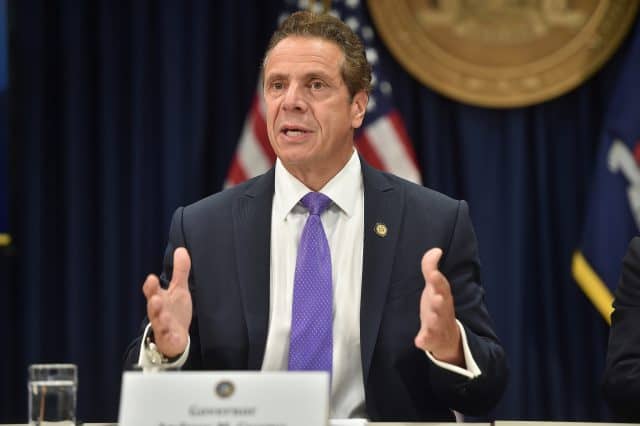
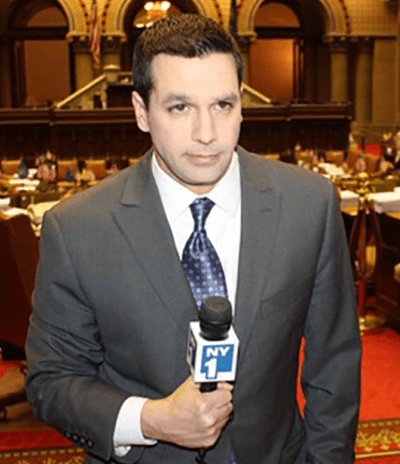
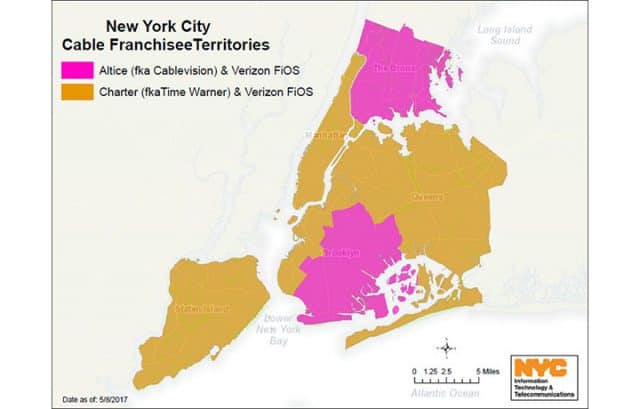
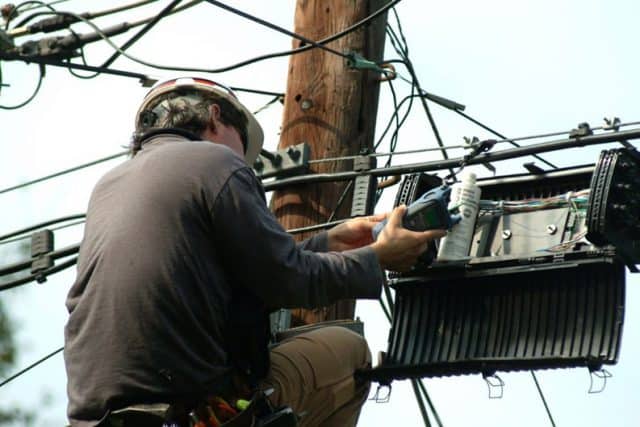
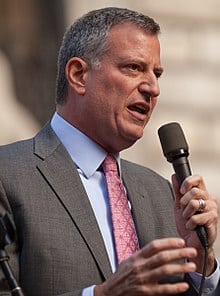
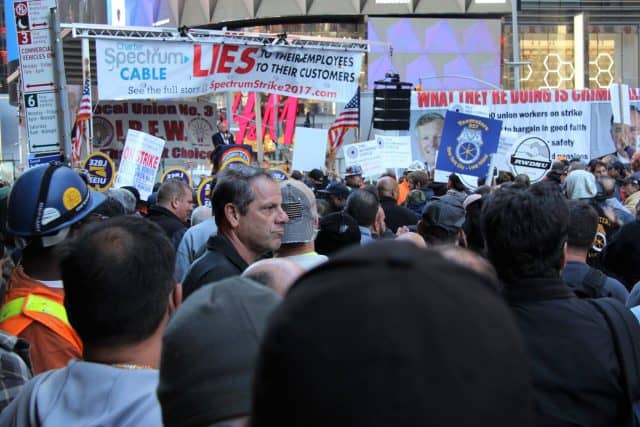 For the last year and a half, while Charter/Spectrum has been accused of dragging its feet on rural broadband rollouts across New York State and is now threatened with franchise revocation, the company had plenty of time to spare waiting out the International Brotherhood of Electrical Workers Local 3, who have been on strike to protest a pay-and-benefits-race-to-the-bottom in the New York City.
For the last year and a half, while Charter/Spectrum has been accused of dragging its feet on rural broadband rollouts across New York State and is now threatened with franchise revocation, the company had plenty of time to spare waiting out the International Brotherhood of Electrical Workers Local 3, who have been on strike to protest a pay-and-benefits-race-to-the-bottom in the New York City. The David vs. Goliath battle has also put enormous strain on some affected families. Some have quit the company and looked for employment elsewhere, some others have returned to work and abandoned the strike, leaving holdouts hoping for a breakthrough.
The David vs. Goliath battle has also put enormous strain on some affected families. Some have quit the company and looked for employment elsewhere, some others have returned to work and abandoned the strike, leaving holdouts hoping for a breakthrough.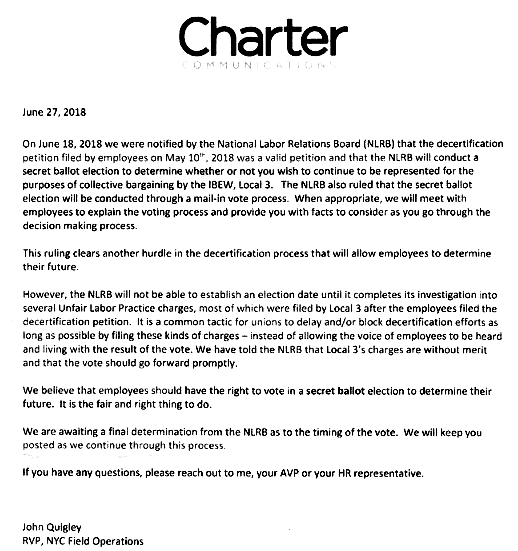


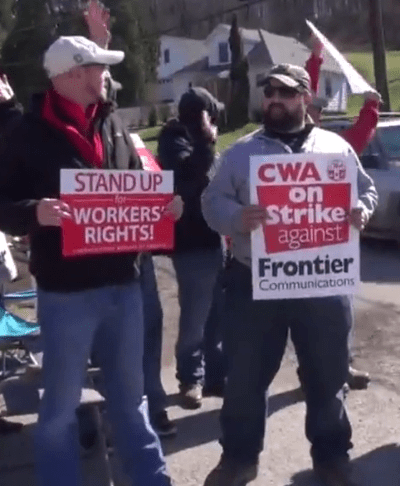 After 10 months of negotiations between Frontier Communications and the Communications Workers of America (CWA) over the phone company’s job cuts, 1,400 Frontier workers in West Virginia and Ashburn, Va.,
After 10 months of negotiations between Frontier Communications and the Communications Workers of America (CWA) over the phone company’s job cuts, 1,400 Frontier workers in West Virginia and Ashburn, Va., 
 “They basically said that until we agree that they don’t have to contribute to our pension and health plan, they won’t talk about anything else,” Chris Erikson, business manager of Local 3,
“They basically said that until we agree that they don’t have to contribute to our pension and health plan, they won’t talk about anything else,” Chris Erikson, business manager of Local 3, 